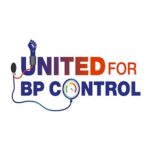“Bhatia Hospital conducts certification programme for teachers, counsellors and educators to create awareness on how to better handle learning disabilities among school children”
New Delhi, February 29, 2020:
Several studies conducted in India to determine the prevalence of learning disabilities (LD) in school children have reported it to be 3-10 per cent among students, varying in different states. The prevalence of Attention Deficit Hyperactivity Disorder (ADHD) in school children with learning disabilities in India has been found to be at 4-40 per cent and increasing every year.
Learning disorders are common morbidities that interfere with learning in school children and often make them perform poorly. Studies have shown that early diagnosis of learning disability in children is critically important to identify and suggest remedial solutions to the parents and children to understand the issue better. With sound knowledge and information, these children can improve substantially along with a combination of medicines, therapy and teaching modifications.
To this end, Mumbai’s Bhatia Hospital conducted a special certification programme on Friday towards managing children with learning disabilities. The programme was conducted by Dr Santosh Kondekar, Eminent Pediatric Neuro Developmental Expert, Bhatia Hospital, Mumbai, and was aimed at training teachers, counsellors, remedial educators, therapists and psychologists to identify and work with such children.
The programme comes at a time when experts have said that the right handling and management can go a long way in helping minimise or regulate the performance behaviour and psychosocial issues arising in children with learning disabilities. If left untreated, such children can become school dropouts and face a range of psychiatric issues. These children often have wide range of issues related to senses, balance coordination, visual and special orientation. This can be tackled by the specialist with specific interventions. If not tackled on time both the issues can become a long-term morbidity and a personality issue affecting the quality of life of the student and their family in future.
The programme was especially curated with a focus on creating awareness among school professionals to help them better understand the different issues among children who are unable to behave or perform well in schools. It aimed at making them comprehend the needs of such child with Learning Disabilities.
Speaking about the programme, Dr. Rohinton Dastur, Director Medical, Bhatia Hospital said, “It is extremely important to detect and treat cases of learning disabilities in children early to help them achieve schooling goals, improve learning and performance and make them into better personalities. The prevalence of LD is perhaps changing and people may find it rising due to improving survival rates of high-risk new-borns. Programmes like these assume more emphasis at this point since it aimed to help teachers and educational professionals understand the situation better and equip them to help the children at the right stage.”
The Rashtriya Bal Swasthya Karyakram (RBSK) – an initiative by the government – classifies learning disabilities as developmental disabilities and People With Disabilities Act classified it under intellectual disabilities. RBSK aims at early identification and early intervention for children from birth to 18 years to cover four ‘D’s which includes Defects at birth, Deficiencies, Diseases and Development delays.
healthysoch







